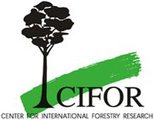The Center for International Forestry Research (CIFOR) has issued a paper on evaluating the impacts of forest management certification and the results of efforts to halt deforestation.
The paper also analyzes the different contributions of forest management certification versus other interventions to address biodiversity loss, rural development and other related factors.
 2 September 2013: The Center for International Forestry Research (CIFOR) has issued a paper on evaluating the impacts of forest management certification and the results of efforts to halt deforestation. The paper also analyzes the different contributions of forest management certification versus other interventions to address biodiversity loss, rural development and other related factors.
2 September 2013: The Center for International Forestry Research (CIFOR) has issued a paper on evaluating the impacts of forest management certification and the results of efforts to halt deforestation. The paper also analyzes the different contributions of forest management certification versus other interventions to address biodiversity loss, rural development and other related factors.
Overall, the report identifies a number of knowledge gaps for the evaluation of impacts including: the forest sector and its political economy; the temporal dynamics of certification; the drivers of self-selection for certification systems; and land-use change.
While noting that there are a multitude of forest management certification systems, the paper gives particular attention to the Programme for the Endorsement of Certification (PEFC) and the Forest Stewardship Council (FSC). In its assessment, the report highlights that the FSC has certified more than 100 tropical forests however, the impacts on environmental and social factors have not yet been well assessed.
In order to fully assess all impacts of forest management certification, the report calls for the early and effective engagement of stakeholders, the gathering of data on biophysical and socio-economic characteristics, and the sharing of evaluation results with a broad set of stakeholders and partners. The report presents nine steps for evaluation: clarify the values that underpin the evaluation; define the scope or boundaries of the evaluation; design parallel processes to assess both the impacts and processes of the certification system; identify and refine questions to be addressed by the evaluation; implement both impact and process evaluations; assess whether the intervention caused the observed impacts; assess threats to the validity of the evaluation; synthesize evidence for the impacts; and support the use of the new knowledge.
CIFOR is a member of the Consultative Group on International Agricultural Research (CGIAR). [CIFOR Press Release] [Publication: An Overview of Current Knowledge about the Impacts of Forest Management Certification – A proposed framework for its evaluation]